Iranian Activists Renew Call On Canada To Designate IRGC

A group of Iranian activists have met several senior Canadian officials to discuss wide ranging issues of concern to the Iranian community and how Canada can help.

A group of Iranian activists have met several senior Canadian officials to discuss wide ranging issues of concern to the Iranian community and how Canada can help.
Canada’s Justice Minister and Attorney General, Arif Virani, along with several Canadian lawmakers, held separate meetings on Thursday with approximately 15 Iranian activists, including Hamed Esmaeilion, who lost his daughter and wife in the shooting down of Flight PS752 by Iran’s Revolutionary Guard in 2020.
The primary topics addressed during these sessions included the designation of Iran’s Revolutionary Guards, known as the IRGC, as a terrorist organization and the legal grounds for expelling agents and affiliates of the Islamic Republic from Canada.
Discussions also revolved around the plight of refugees, asylum seekers, and families impacted by the Islamic Republic's crimes, including victims of protests and persecuted minority groups such as the LGBTQ community. The activists urged Canada to establish a dedicated refugee program for over 500 Iranians seeking refuge from political persecution.
In a statement issued by the activists, it was noted, "Canada has, regrettably, been too willing to admit individuals with ties to the Islamic Republic but has been less receptive to asylum seekers."
“The IRGC is a murderous and corrupt organization that has killed many Canadians, carried out terrorist acts across the world, and stolen billions from Iran's public coffers,” added the document.
Furthermore, the activists called for continued legal efforts against the Islamic Republic's authorities regarding the PS752 case. Iran has consistently refused to cooperate with international investigations into the incident, which resulted in the tragic loss of 176 innocent civilians.
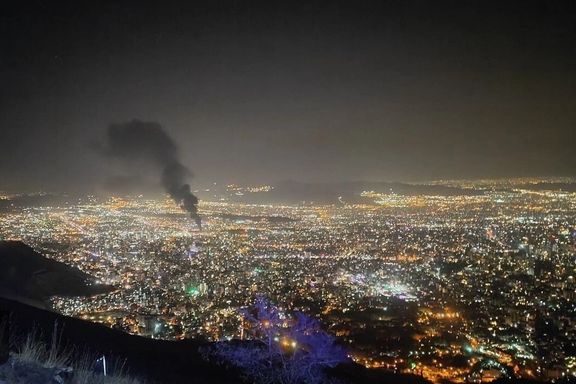
An overnight fire broke out at a warehouse of Iranian defense ministry, the latest in a series of incidents hitting the Islamic Republic's industrial facilities.
State media reported on Friday that the fire at the 2,000-square-meter storage site in the capital Tehran had been extinguished, with no reports of casualties or details regarding damage.
A statement from the defense ministry indicated that the fire had affected one of the plastic material warehouses associated with battery manufacturing and affiliated with the defense ministry. The cause of the blaze remains under investigation.
According to Tehran's fire brigade, the blaze broke out around midnight, and state broadcasters aired footage showing smoke rising from the scene.
Last month, a massive fire occurred in an industrial zone in Doroud, southwest Iran, resulting in two individuals being hospitalized.
Since mid-2020, a series of explosions and fires have taken place in Iran's military, nuclear, and industrial facilities. In March, a substantial fire impacted three warehouses owned by a home appliances manufacturer, while in January, a significant fire broke out at an Iranian military industry factory in Esfahan (Isfahan), with suspicions of a drone strike. Iran attributed the strike to Israel, although the claims were never officially confirmed.
Late in August, Iran reiterated its accusations against Israel, alleging its involvement in a failed plot to sabotage Iran's defense industry and missile production. Iranian authorities stated that a network of agents had attempted to introduce faulty components into the production of advanced missiles.
Israel has consistently maintained its willingness to target Iranian facilities if diplomatic efforts fail to restrain Iran's nuclear or missile programs, although it refrains from commenting on specific incidents.
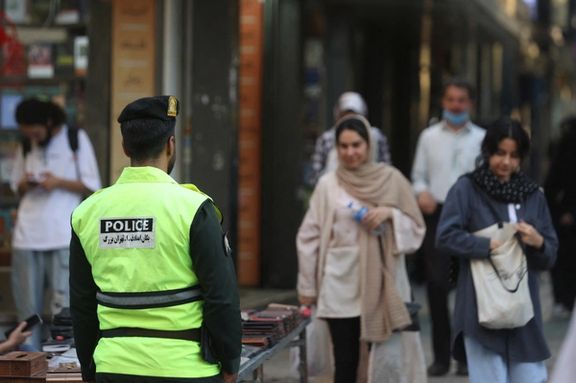
Amnesty International has decried Iran’s new hijab law that will impose “draconian penalties” and increase prison terms and fines for defying compulsory veiling.
In a statement issued Thursday, Diana Eltahawy, the human rights group’s deputy regional director for the Middle East and North Africa said, “This bill is a despicable assault on the human rights of women and girls that will further entrench violence and discrimination against them in Iran.”
Earlier in the week, Parliament Speaker Mohammad-Bagher Ghalibaf announced that the bill was approved for a "three-year trial run" following coordination and a written confirmation by the judiciary. The contentious bill's content was finalized by a committee of approximately 10 lawmakers making the best use of an obscure regulation known as Article 85. The only aspect voted upon was the duration for the trial implementation.
Article 85 of the constitution enabled the parliament to effectively sideline opposition by restricting discussions on the bill to an internal committee. The committee's decisions are set to be sent to the Guardian Council, whose members are chosen by Supreme Leader Ali Khamenei. If the council deems the decisions to be in line with the Constitution, they will be implemented throughout the country. Legal experts say the hijab bill violates not only civil rights but also the Constitution and requires vast resources beyond the government’s means.
Eltahawy said that the new regulations will further “exacerbate the already suffocating surveillance and policing of women’s bodies, ”mandating the Islamic Republic’s various political, security and administrative bodies to “obsessively observe compliance with compulsory veiling laws and control women’s and girls’ lives.”
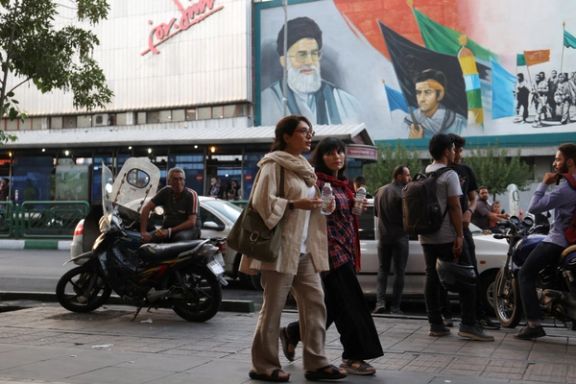
Initially comprising only 15 articles, the "Hijab and Chastity" bill was sent to parliament by the administration of Ebrahim Raisi. It has since expanded to include 70 articles. The bill was proposed after months of nationwide protests following the death of Mahsa Amini, a 22-year-old woman who died in police custody last year, allegedly for breaching hijab rules.
The uprising sparked by the death in police custody of Mahsa Amini in September 2022 has made it increasingly difficult for the clerical regime to enforce the mandatory Islamic dress code. Since the beginning of the ‘Women, Life, Freedom’ movement, tens of thousands of girls and women have shed their compulsory hijab. The regime seeks to criminalize hijab defiance, but no branch of government wants to solely shoulder the responsibility for complications of such a provocative and risky action in society.
Amnesty International's Eltahawy further described the bill as an "all-out assault," meant to "crush the spirit of resistance among those who dared to stand up against decades of oppression and inequality as part of the 'Women, Life, Freedom' popular uprising."
She also called on the global community to pressure the Islamic Republic's authorities to revoke the bill and abolish all degrading and discriminatory compulsory veiling laws and regulations, stating that the world must "pursue legal pathways at the international level to hold Iranian officials accountable for ordering, planning, and committing such widespread and systematic violations against women and girls."
Human rights advocates have warned that the bill's implementation could lead to “increased violence, harassment, and arbitrary detentions of women and girls in Iran.” Both the United Nations Human Rights Commission and the UN's Independent International Fact-Finding Mission on the Islamic Republic of Iran have issued statements this month expressing their concerns over the potential consequences of this bill on the rights and freedoms of Iranian women.
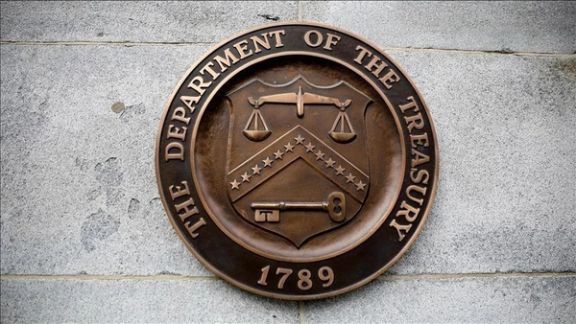
The US government reached settlements with 3M Company and Emigrant Bank for their violations of Iran sanctions laws, the Treasury Department announced Thursday.
The US Department of the Treasury’s Office of Foreign Assets Control (OFAC) announced a $9.6 million settlement with 3M Company for 54 apparent violations of OFAC sanctions on Iran. The case is related to its subsidiary’s sale of reflective license plate sheeting to an Iranian entity controlled by Iran’s Law Enforcement Forces.
“Between September 2016 and September 2018, 3M East AG sold 43 orders of this product to a reseller with knowledge that it was destined for a customer in Iran,” the statement said and added, “OFAC determined that these apparent violations were egregious and were voluntarily self-disclosed.”
In a much smaller settlement, Emigrant Bank agreed to remit more than $31,000 to settle its potential civil liability for maintaining a Certificate of Deposit Account on behalf of two individuals located in Iran, for 26 years.
The low amount of this settlement, the Treasury said, reflected “OFAC’s determination that Emigrant’s conduct was non-egregious and voluntarily self-disclosed.”
In one of the largest such settlements, Italy’s top bank UniCredit SpA and two subsidiaries agreed in April 2019 to pay $1.3 billion to US authorities to settle probes of violations of US sanctions on Iran and other countries.
In 2017, ZTE Corporation agreed to enter a guilty plea and pay a $892 million penalty to the US for conspiring to illegally ship US-origin items to Iran.
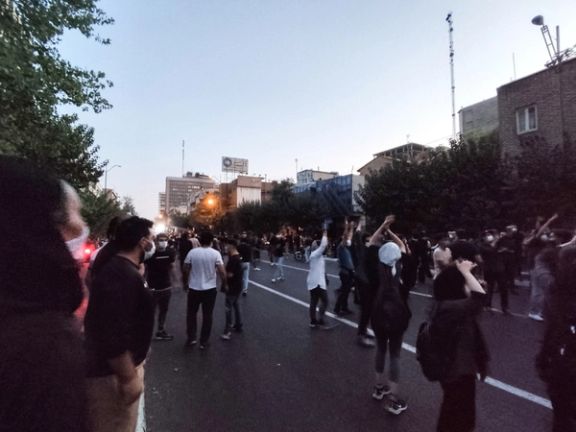
Elon Musk has said that X (formerly Twitter) might start charging its users “a small fee” and insisting that the aim is to “combat vast armies of bots."
It’s hard to tell if that’s the real intention – or if it’s just about money. It’s also hard to tell how effective it would be in keeping out the bots.
One thing is almost certain, however: that any ‘monthly payment’, no matter how small, would keep out thousands of users living in Iran.
Thanks to the tireless efforts of the Islamic Republic since its inception, Iran is completely isolated from the global financial system. There’s no Visa or Mastercard in Iran. Those inside can’t even use PayPal, due to the US sanctions regime.
Some may find ways to go around this, of course, especially those with friends or family abroad who are willing to pay on their behalf. But they would be a tiny minority. The rest would have to abandon the platform.
And no one would be happier than the ayatollahs.

Elon Musk is, of course, aware of the information isolation people in Iran face. At the same meeting where he floated the idea of charging X users, he revealed that he had received a letter from Tehran, complaining about the activation of the satellite internet service Starlink over the country.
“We got permission from the State Department to turn on Starlink over Iran,” he said in a conversation with Israeli Prime Minister Benjamin Netanyahu, “and a few people are using it… we got an upset letter from the government of Iran”.
For many years now, the anachronistic regime in Iran has been trying to cut off Iranians from thousands of websites and social media –generally, because it doesn’t like spaces it can’t control, even virtual ones, but more specifically, because more elite Iranians use X for political expression and organization perhaps more than any other platform.
Reliable figures on users (or usage) are hard to come by. But the most popular accounts on X –those which post solely in Persian– have around 2 million followers.
Instagram has a lot more active users inside Iran, perhaps ten times that of X, if the biggest accounts are an indication. Instagram wasn’t blocked until the 2022 protests last September. But it’s a different universe entirely. Millions use it to advertise, sell and buy (partly because it was the only non-blocked platform for a long time).
On X, however, politics seems to be a much more prominent topic. It’s the platform of choice for Iranian journalists, activists and those who’re often called ‘opinion-makers, for want of a better word. Even the Islamic Republic insiders have active accounts on X –from the Supreme Leader and the President down to the state-affiliated journalists who support their politics of restriction and suffocation.
They will all be over the moon to see X go behind a paywall.
Of course, Musk and X could always come up with ‘smart’ solutions: excepting those living under dictatorships, for instance, for whom the platform offers a lifeline. But it won’t be easy, since ordinary Iranians inside Iran have to use circumvention tools to access X, making it harder to determine their real location.
It’s not clear when the plan to charge X users takes effect. And it’s not clear how much people should pay to access the platform.
X does have a subscription service already, charging for features like editing posts and ranking higher in conversations and search –and of course the blue tick. That service starts at $8 a month.
The new subscription is likely to be cheaper. Musk says a “lower tier” pricing is “the only defense against vast armies of bots." Time will tell if that’s the case where Elon Musk lives. In Iran, though, the winners and losers of his plan are clear from now.

The Independent Filmmakers Association of Iran (IFMA) has requested an independent inquiry into the selection of next year's Oscars nomination.
The IFMA sent an official letter to the Oscars Academy regarding the submission of The Night Guardian by Reza Mirkarimi as Iran's entry for the prestigious awards ceremony, objecting to the involvement of the Farabi Cinema Foundation, a governmental entity,.
"The representative of Iran's state cinema for participation in the 2024 Oscars ceremony has been selected and introduced by the Farabi Cinema Foundation, which is a state entity affiliated with the oppressive regime of Iran," states the letter.
The IFMA's letter drew attention to the oppression faced by independent filmmakers in Iran over the past year, citing arrests, interrogations, and threats. The Farabi Foundation has stated its coordination with security and intelligence agencies.
The IFMA is calling for the establishment of a selected group to review and introduce independent Iranian films for consideration at the Academy Awards next March, the ceremony held annually in Los Angeles. The association has also submitted a list of proposed works for the Oscars Academy's consideration.
Iran has achieved success at the Oscars in recent years, winning awards for "A Separation" in 2011 and "The Salesman" in 2016, both directed by Asghar Farhadi.






